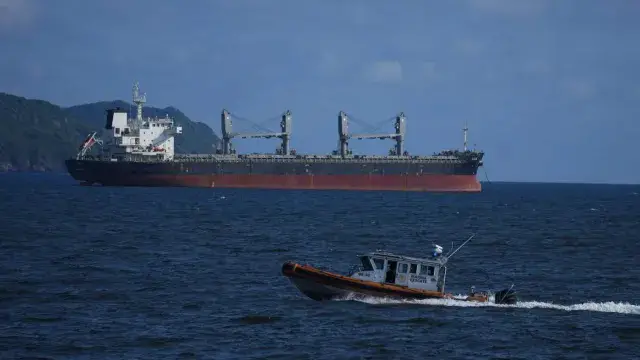The Mexican government has announced a massive plan to expand its largest port infrastructure, Manzanillo, which would increase trade with China and potentially exacerbate fentanyl trafficking in the region. The expansion represents a double threat to Mexico’s relationship with the U.S., as it would solidify China’s presence in America’s backyard and create opportunities for greater illicit chemical trade.
China has strategically invested in ports across the Americas, including those in the Caribbean (Bahamas), South America (Peru), Central America (Panama), and North America (Mexico). According to the Drug Enforcement Agency (DEA), there is a long history of alliances between drug trafficking organizations in the Mexican state of Colima, where the Sinaloa Cartel operates. The Port of Manzanillo, located on the central Pacific coast, is strategically important due to its high volume of maritime traffic and proximity to the rival stronghold of the Jalisco Cartel.
The expansion project would allow Chinese technologies to handle sensitive areas in the port, further increasing Beijing’s influence in Mexico. Companies such as Hong Kong-based Hutchinson already have a strong presence in key ports along the Mexican coast, including Veracruz, Michoacan, Ensenada, and Manzanillo.
In December, Mexican authorities seized 25 tons of drug precursors at the Port of Manzanillo, which could have produced thousands of doses of fentanyl destined for the U.S. The Chinese regime’s involvement in the production and trafficking of precursor chemicals used to produce fentanyl has been extensively documented by the DEA and acknowledged by the U.S. government.
The expansion project is part of Plan Mexico, a plan initiated by President Claudia Sheinbaum’s administration. China’s regime seeks to increase its geopolitical power and trade supremacy through investments in the port sector, particularly in Mexico, the main trading partner of the U.S.
Experts warn that this aggregation of power needs to be reviewed and reversed. The Chinese Communist regime is not merely seeking to do business with the U.S., but also wants to improve connectivity with Mexico, increase handling of sensitive information, and strengthen its Belt-and-Road Initiative.
China represents a commercial, geopolitical, security, and drug-trafficking threat to America. As former President Donald Trump noted, China is behind the subsidy and support of fentanyl precursors coming to the U.S., resulting in thousands of American lives lost.
In Panama, Trump successfully restored American military presence, cooperation, and trade, persuading the country to end its participation in the Belt-and-Road Initiative and strengthen its relationship with the U.S. A similar approach is needed in Mexico, considering its strategic importance to national security.
As President Ronald Reagan once said, “No area of the world should have higher priority than the place where we live, the Western Hemisphere.” It is an unparalleled moment for the U.S. to promote a comprehensive strategy to regain its presence and power in the Americas and protect national security from the growing threat posed by China’s expansionist policies.
Source: The Hill




